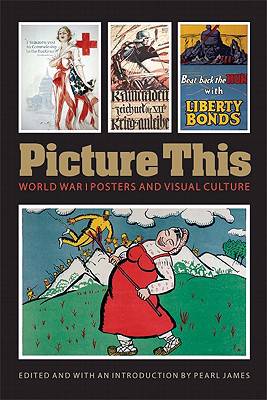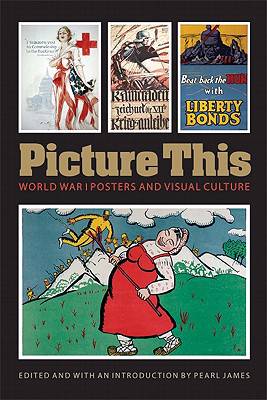
Bedankt voor het vertrouwen het afgelopen jaar! Om jou te bedanken bieden we GRATIS verzending (in België) aan op alles gedurende de hele maand januari.
- Afhalen na 1 uur in een winkel met voorraad
- In januari gratis thuislevering in België
- Ruim aanbod met 7 miljoen producten
Bedankt voor het vertrouwen het afgelopen jaar! Om jou te bedanken bieden we GRATIS verzending (in België) aan op alles gedurende de hele maand januari.
- Afhalen na 1 uur in een winkel met voorraad
- In januari gratis thuislevering in België
- Ruim aanbod met 7 miljoen producten
Zoeken
Picture This
World War I Posters and Visual Culture
€ 45,95
+ 91 punten
Omschrijving
The First World War was waged through the participation not just of soldiers but of men, women, and children on the home front. Mass-produced, full-color, large-format war posters were both a sign and an instrument of this historic shift in warfare. War posters celebrated, in both their form and content, the modernity of the conflict. They also reached an enormous international audience through their prominent display and continual reproduction in pamphlets and magazines in every combatant nation, uniting diverse populations as viewers of the same image and bringing them closer, in an imaginary and powerful way, to the war. Most war posters were aimed particularly at civilian populations. Posters nationalized, mobilized, and modernized those populations, thereby influencing how they viewed themselves and their activities. The home-front life--factory work, agricultural work, domestic work, the consumption and conservation of goods, as well as various forms of leisure--became, through the viewing of posters, emblematic of national identity and of each citizen's place within the collective effort to win the war. Essays by Jay Winter, Jeffrey T. Schnapp, Jennifer D. Keene, and others reveal the centrality of visual media, particularly the poster, within the specific national contexts of Britain, France, Germany, Russia, and the United States during World War I. Ultimately, posters were not merely representations of popular understanding of the war, but instruments influencing the reach, meaning, and memory of the war in subtle and pervasive ways.
Specificaties
Betrokkenen
- Uitgeverij:
Inhoud
- Aantal bladzijden:
- 416
- Taal:
- Engels
- Reeks:
Eigenschappen
- Productcode (EAN):
- 9780803226104
- Verschijningsdatum:
- 1/01/2010
- Uitvoering:
- Paperback
- Formaat:
- Trade paperback (VS)
- Afmetingen:
- 150 mm x 226 mm
- Gewicht:
- 635 g

Alleen bij Standaard Boekhandel
+ 91 punten op je klantenkaart van Standaard Boekhandel
Beoordelingen
We publiceren alleen reviews die voldoen aan de voorwaarden voor reviews. Bekijk onze voorwaarden voor reviews.








